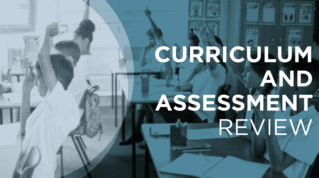Latin story-writing competitions, trips to classical sites and Latin orations may seem hallmarks of a private education.
But they were just some of the opportunities made available to state school pupils by the government’s Latin Excellence Programme (LEP).
However, after schools were told before Christmas the scheme would be axed in March, heads say pupils from disadvantaged backgrounds will lose access to these opportunities.
“Pupils are going to lose that richness of their education that someone in a private school down the road could have,” said Ian Raikes, the chief executive of Southport Learning Trust.
More than 500 pupils study Latin across six of its schools. Raikes said the government decision was “really disappointing”, adding that the scheme helped to put state school pupils “on an equal, competitive footing for when they go to sixth form and university”.
LEP was created in 2021 to broaden access to Latin under then-education secretary Gavin Williamson. He said while the subject had an “elitist” reputation, it could bring “so many benefits to young people”.
‘Priceless opportunities’
A British Council survey in 2020 found just 2.7 per cent of state schools offered Latin, compared with 49 per cent of private schools.
Forty state schools, mostly in poorer areas, now teach the subject thanks to the LEP – reaching more than 5,000 pupils, more than a third of whom are eligible for free school meals.

A Centre of Latin Excellence, established at Future Academies trust which leads the scheme, has helped to train teachers and support schools.
Heads say the £4 million scheme was relatively small fry, but delivered priceless opportunities.
Its closure comes as the government seeks to plug a £22 billion “black hole” in public finances that it says it inherited.
Schools are now scrambling to establish whether they can even continue to offer Latin without the LEP, whose funding helped to cover teacher salaries and subsidise enrichment trips.
Jo Aughton, who leads the LEP’s North West hub, said the programme helped to fund trips to Hadrian’s Wall and Rome, allowing pupils of all backgrounds to visit “cultural places they’d never have been able to go”.
Following the government’s decision, two of Southport Learning Trust’s schools may now have to cancel trips to Rome.
At Polam Hall School, in Darlington, all year 7 pupils learn Latin, while about 50 per cent opt to study it in year 8. Almost a third of the school’s pupils are from disadvantaged backgrounds.
State kids ‘deserve access to Latin too’
Kate Reid, the school’s principal, said pupils “absolutely adore” the subject. The government’s decision was “appalling”.
About half the pupils hoping to go to Rome this October were eligible for free school meals. Their places were to be subsidised by LEP funding, with some given places free.
Reid said this kind of subsidy would no longer be possible.

“We will keep teaching Latin, but what we won’t be able to do is to offer all that extra [enrichment],” she said. “Our school funding won’t allow us to do that.”
It is also unclear whether the school will now be able to introduce Latin at GCSE, as it had planned.
“Our pupils deserve to have access to a subject like that,” said Reid. “It’s not just about Latin. It’s been about offering our pupils opportunities they wouldn’t otherwise be able to access.”
West Exe School in Exeter, which also offers Latin under the LEP, will have to reassess whether it could introduce a Latin GCSE as planned, said head Julie Fossey.
Mid-year axe ‘cruel’
Laura Trott, the shadow education secretary, said: “This government will give train drivers massive pay rises but won’t pay for children to learn Latin.
“They’re also pulling this funding mid-year, which is just cruel. Education vandalism once again.”
The news, revealed by Schools Week in December, also angered high-profile historians and classicists.
Tom Holland, host of the Rest is History podcast, accused the government of “thinking the study of Latin should be exclusive to private schools”.
Classicist and author Mary Beard said: “I am trying hard to resist the idea that it’s prejudice against the subject (combined with a dash of ignorance),” she wrote on X.
A DfE spokesperson said the “independent curriculum and assessment review will make sure all pupils benefit from a curriculum that delivers excellent foundations in reading, writing and maths, and ensures every young person gets the opportunity to develop the skills needed to succeed in work and life”.















I didn’t do Latin at school, thanks to a combination of secondary modern and comprehensive schooling. However I taught myself as much as I can using books and online tools. Most of my Latin is church (ecclesial) Latin, but it’s still a useful subject. A person with a little Latin has a way into modern European languages as well as some understanding of the basis of many English words. Far from being dead, it’s a vibrant language which is direct and lively. I’ve just ordered myself a copy of the Book of Common Prayer in Latin, the Liber precum publicarum.
Poorly timed article when a lot of independent schools will be axing subjects like this.